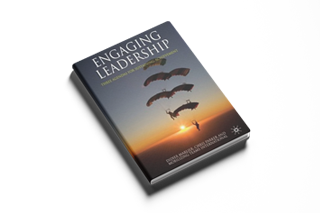In Campbell’s Monomyth, Falling and Recovering are important indicators that one truly is on their Heroic Journey. Indeed, could you envisage a Hollywood blockbuster without its Hero struggling, falling, losing it all, then running into hiding, in order to recover and prepare to launch their counterattack against Evil, Bad or their Enemy? Should the Heroin get it right at the first encounter and win the fight, the movie would last 15 minutes and would never make it to the top of the charts. Falling is the sign that you are fighting against your demons, that you have met your Nemesis, just as it is part of your healing process. How you heal is your choice…
This is what star tennis player Nenad Djokovic explains to us in this short interview, posted by Professor Adam Nicholls, who teaches at the university of Hull. The main focus of his research relates to the psycho-social factors that predict doping among adolescent athletes, along with coping and emotions among athletes. Professor Nicholls posts plenty of interesting material on his page, which I warmly recommend you to visit.
In our practice of supporting teams of all sorts, at all levels so that they may hold their long overdue difficult conversations, we are frequently confronted to periods or risks of emotional outburst and other tantrums. How we help people who are “in the grip” of a strong and destructive emotion, to go over it is by:
- Not attempting to reason them: when someone “goes limbic” (the Limbic part of our brain is, amongst others, the centre of our emotional responses and of our defence mechanisms), telling them not to is the worse reaction one may have. It usually is taken by the “offender” as a denial of their entitlement to be upset or a belittlement of what they feel and that they are legitimate in feeling so. I confess, being sometimes nicknamed “The Drama Queen” by my peers and friends, that I speak here out of experience. When I “blow a fuse”, any attempts to rationalise what is happening is short lived. Instead:
- Showing empathy and understanding for the reasons why I feel upset, helps much more. The emotional connection, the desire to understand imply that, I will, by myself (as Djokovic suggests) come down and reconnect with my lost temper and rationality. Do not commit the mistake of confusing empathy and understanding with fake agreement and collusion: these trigger an instant rejection from the perpetrator, who will feel manipulated and disrespected.
- Another sophisticated and demanding method is, of course humour: How could anyone resist to such a trait of humour, accompanied with a great laughing?
Short article this week, but I found the post of Dr Nicholls and his sharing of Djokovic interview, helpful… No matter what wanted or unwanted help we get, “Coping and Recovering” are in our hands.
Enjoy your Leadership Journey!



0 Comments